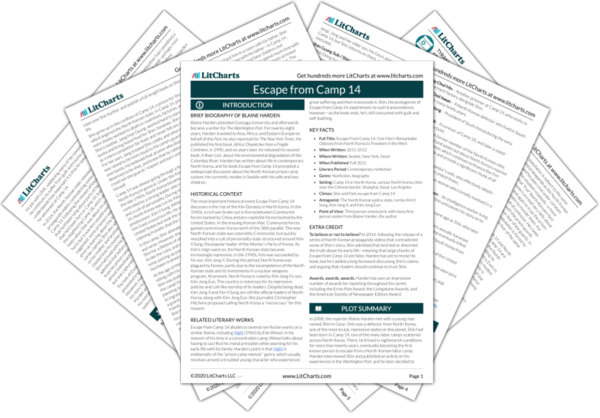Harden argues that Shin could become a spokesperson for the anti-prison camp movement. One problem with his argument, however, is that human rights spokespeople need to be honest and forthcoming about their pasts—otherwise, they threaten to discredit their cause. There should be no expectation that Shin be a public figure and speak out against North Korea (he has every right to be a private person), but
if Shin acts as a public figure in the movement, it’s of the utmost importance that he tell the truth. However, this doesn’t mean that readers shouldn’t also be sympathetic to Shin’s situation and understand that traumatized people sometimes change the truth to maintain their self-worth and sanity.
